
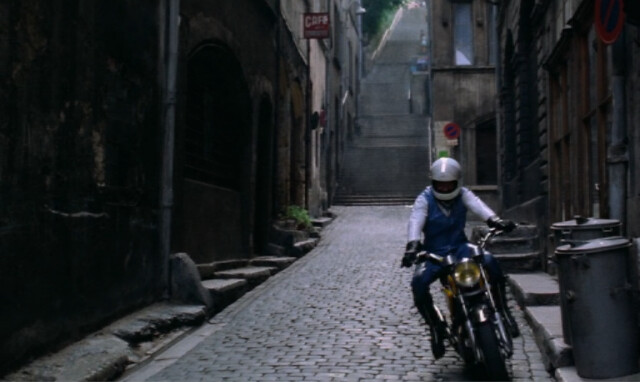
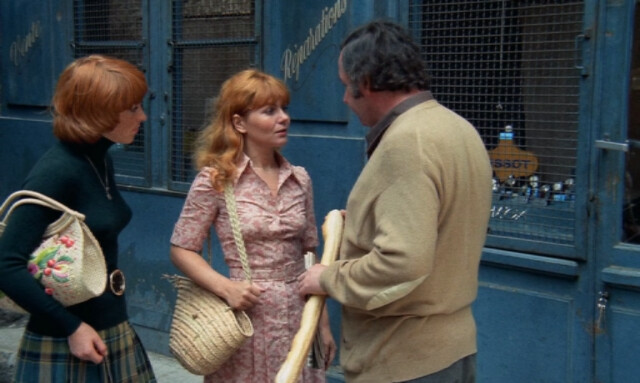
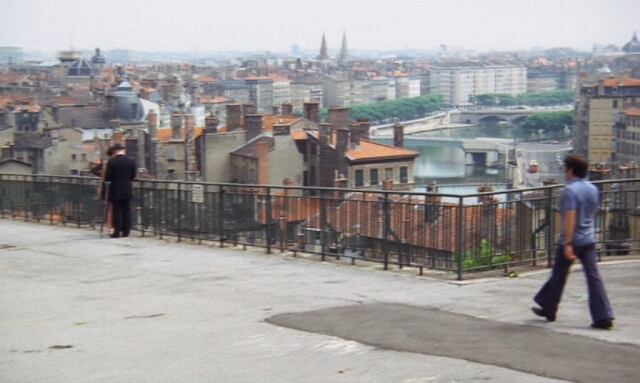

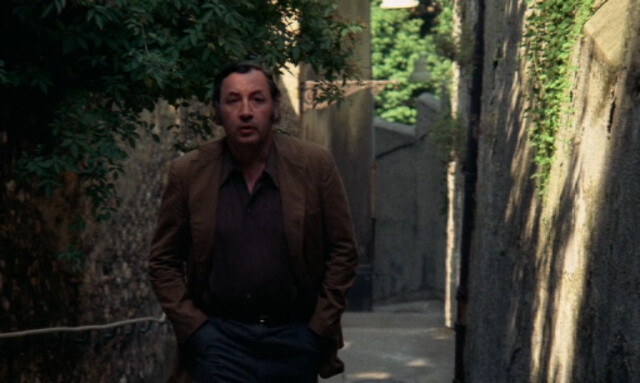
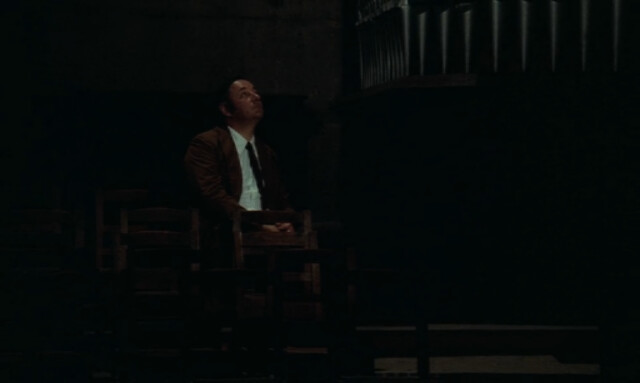
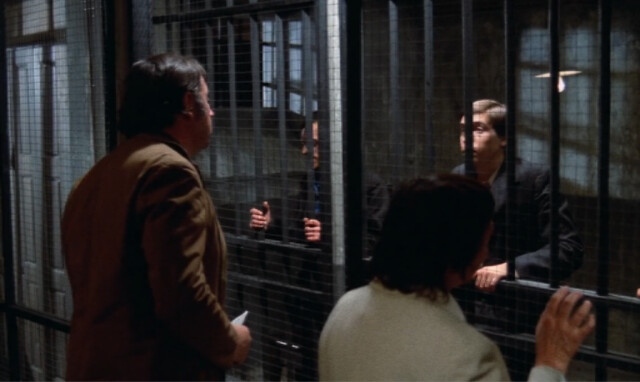
A burning car seen from a moving train is a starting point of L'horloger de Saint-Paul, the feature debut by critic-turned filmmaker Bertrand Tavernier. The film tells a story of father and son reconnecting after the son is accused of murder. It serves as a reflection of the director's view of French society after the violent upheaval of 68' and it deep rift between generations. A widowed watchmaker Descombes (Philippe Noiret) leads a comfortable petit bourgeois life in the southern city of Lyon. He goes out with friends in their favorite restaurants, drinks some wine and discuss politics. His life is suddenly shaken by the news of his son, Bernard, committing murder and on the run with his girlfriend that Descombes never met. A friendly police chief Guilbord (Jean Rochefort) strikes up a friendship with Descombes as they run into each other often, in the market or restaurants and talk about life's incongruities.
Understanding Bernard is a challenge for Descombes. Even though they lived under the same roof, he never paid much attention to what his son was up to or thinking. As distraught father looks up at some communist slogans in his son's room, it's like a trying to put back the pieces together in figuring out what kind of a young man Bernard grew up to be. The young man gets caught along with his girlfriend in an island where Descombes took him as a child once. They are put on trial. Everyone - the lawyer, Guilbord want to help the kid to get a lighter sentence, trying to depict the murder as crime of passion. Bernard wouldn't budge from his convictions - the dead man was a paratrooper in Algerian War and a major asshole to women in the factory where they worked. For Bernard, he was a swine: a personification of everything thought wrong about the current state of France. So he killed him. Simple as that.
There are some genuinely funny moments like Desombes and his communist friends beating up ultra right-wing thugs (friends of the deceased) who came in by bus to wreck havoc on Descombes' s shop. But the film goes far beyond highlighting differences in politics.
Tavernier's interests lie on human interactions. He doesn't see characters as archetypes, as Guilbord puts it, "like people in movies". It's a somber and sad film- "Shootouts? That happens only in the movies." He also beautifully lenses his home city of Lyon- every street corner, every mom and pop shops and restaurants are rendered with care. Noiret gives a tremendously soulful performance- a father who understands his son's actions and doesn't want to sugarcoat his motives to reduce his sentence nor compromise the young man's principles. Only after Bernard is sentenced for twenty years in prison, the father and son can talk to each other. The barrier's finally gone. The Clock Maker is a great great film.
No comments:
Post a Comment